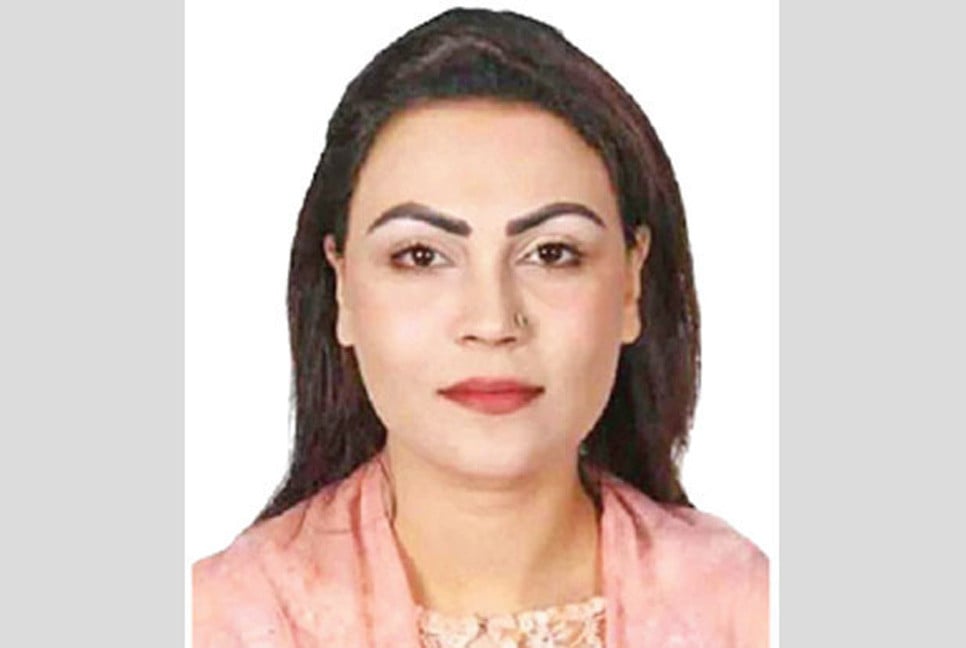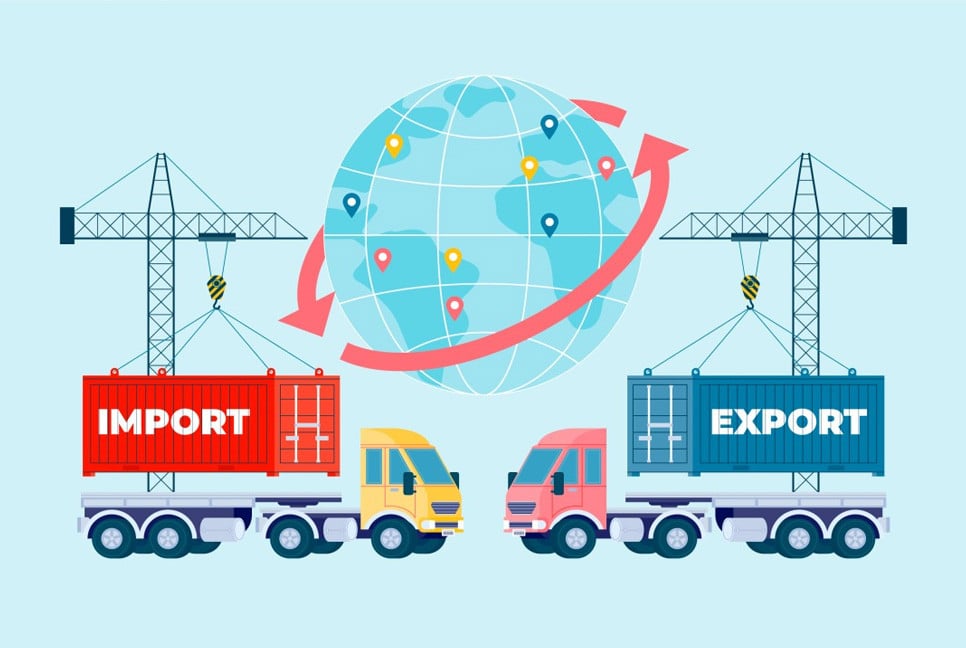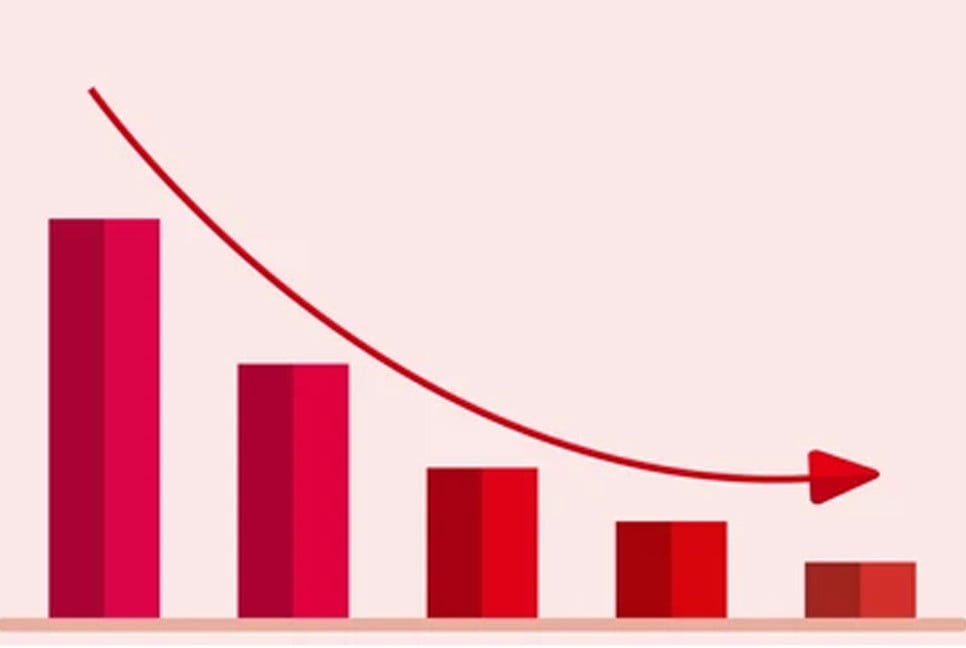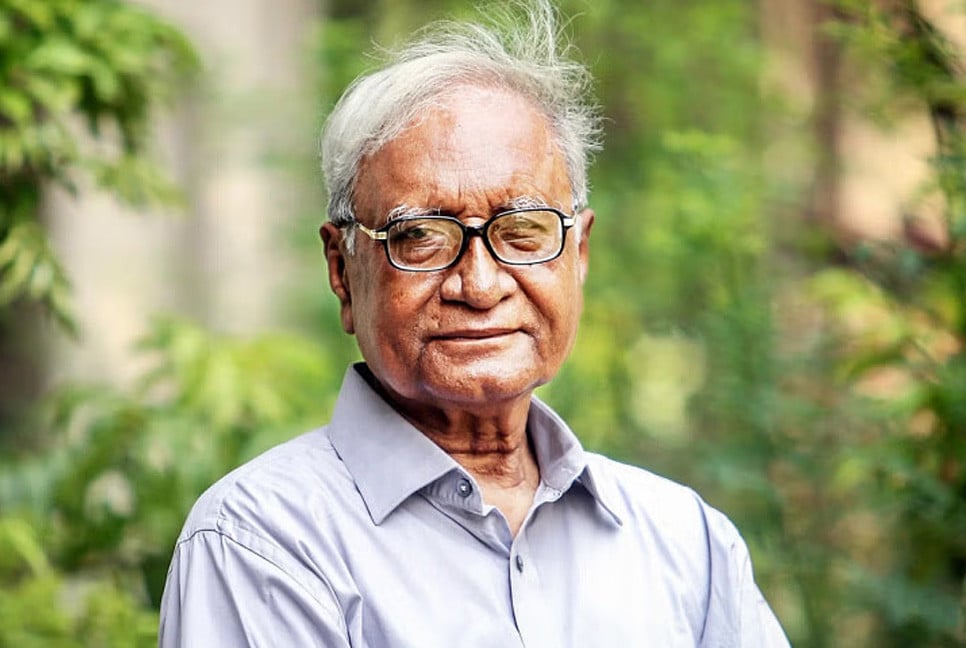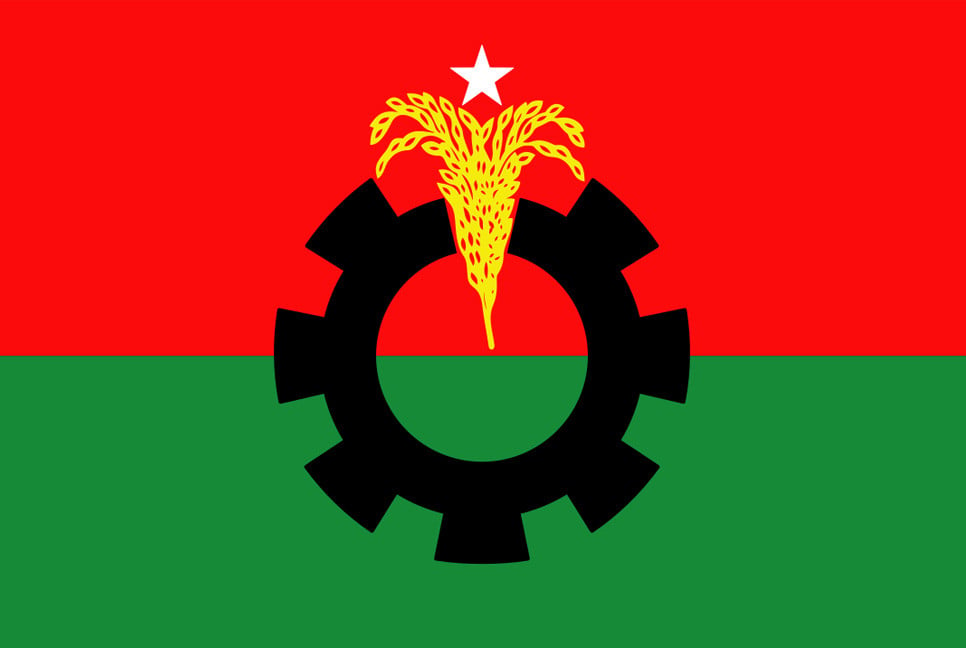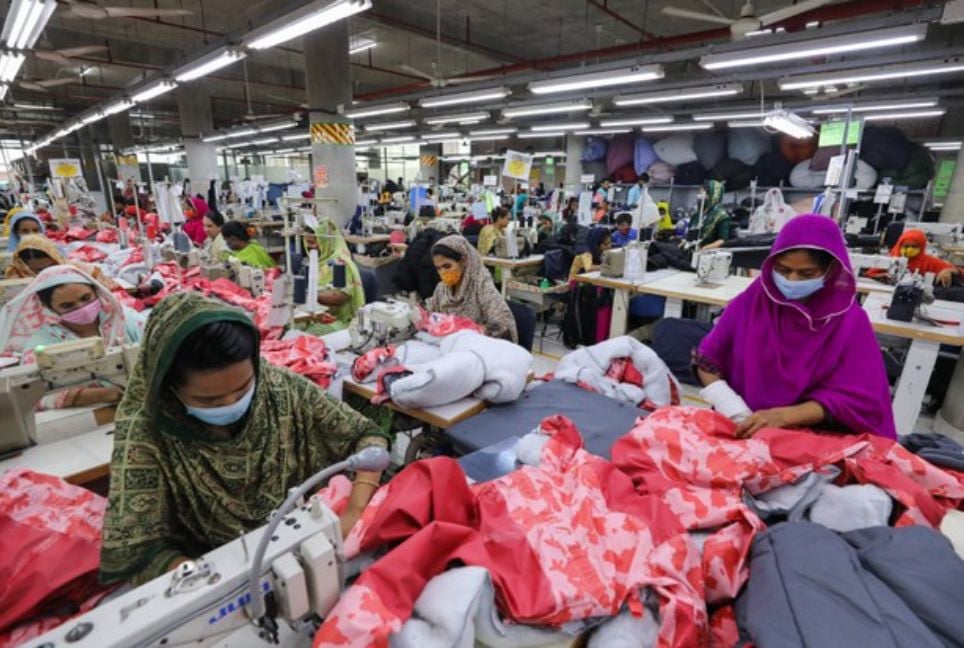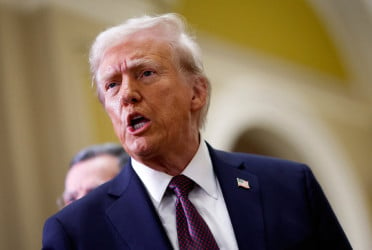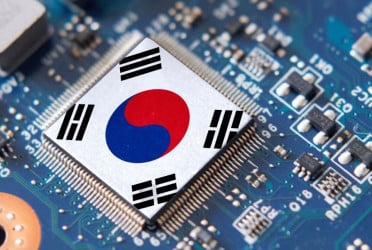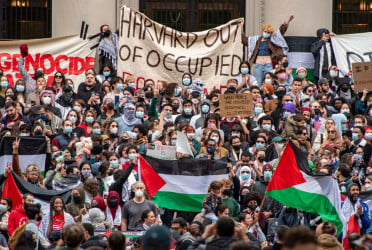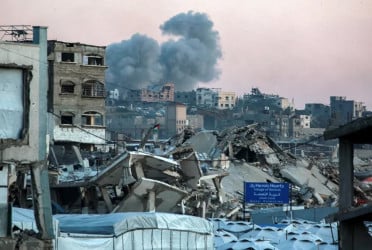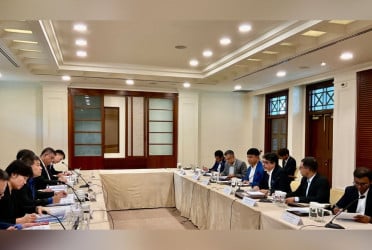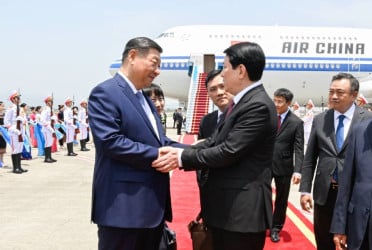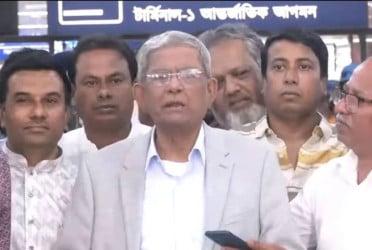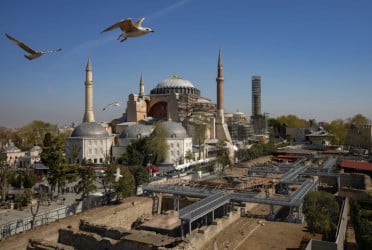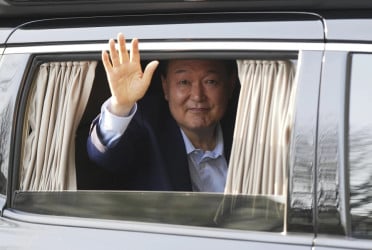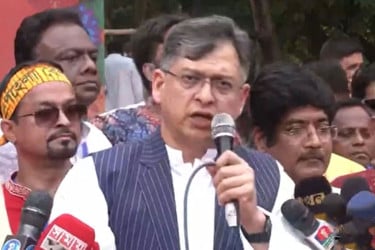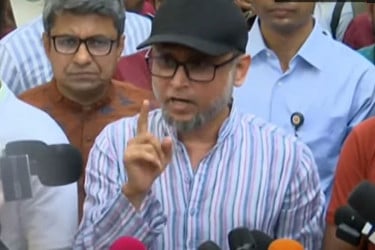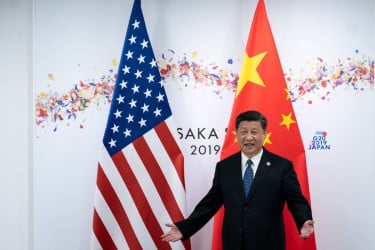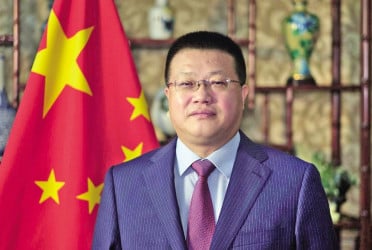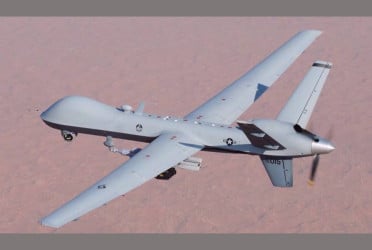A vicious trade war is brewing between the world’s two superpowers: the US and China. The US-China trade war is itself enough to devastate Asian economies, including Bangladesh. The ailing Bangladesh economy will find it unbearably difficult to weather a trade war, making it indispensable for the interim government to team up with the private sector.
On Friday, China hiked tariffs on US imports to 125%, matching the measure of its stronger arch-rival. The latest tariff hike implies that although President Donald Trump’s tariff attacks against almost all countries may have been paused, his war with nemesis China would continue. Trump has paused his tariff hikes for all trading partners, except China, for 90 days after what he claimed requests for relief from numerous foreign leaders. That gives no guarantee the trade wars on multiple fronts would end for good, and the European Union (EU), another huge economic power, is already preparing to counter potential US measures. Aside from Trump’s fight against multiple trading partners, his continued war against China is more than enough to roil the global economy. Given the size of the two giant economies, the ripple effects would certainly be huge.
These are bad news for the ailing Bangladesh economy. Adding to the pressures, India recently partially halted transshipment facility for Bangladesh that allowed exporting goods to third countries using Indian ports.
Since 5 August last year, Bangladesh has been buffeted with new economic troubles. External remittances and garment exports appear to be the only green shoots propping up the economy. But there is no guarantee the current elevated remittance inflow trajectory can continue for months. The garment sector has also been troubled by labour unrest. A number of factory owners, supposed to be allied with the fallen Awami League fascists, have gone into hiding, and many other factories have shut down due to unrest and payment issues.
The government is trying to revive the economy left in shambles by the ousted Awami League government. But moves like reducing the bank sector’s default rate, and recovering laundered money are time-consuming processes. The IMF is keen to disburse new funds but has attached conditions that also would take a long time to meet. Against this backdrop, the US-China trade war piles nearly insurmountable pressure on the Prof Yunus-led interim government.
The government has so far moved smartly and swiftly. Shortly after Trump hiked tariffs on Bangladeshi exports to the US to 37%, Prof Yunus convened emergency meetings with other policymakers. A day after Trump paused extra tariffs on Bangladesh and almost others, Prof Yunus thanked the US president.
However, policymakers must remember that the private sector contributes to 90% of the total national economic output and employs a similar share of the total workforce. The business community has abundant innovative power to drive the economy. Entrepreneurs, both big and small, make their contributions not only for their own income but for the sake of the countrymen. However, since 5 August, they have been facing attacks on their factories and other fronts. The government has moved to allay the concerns, but these have not been enough. Rather attempts have been made in government circles to maintain a distance with the business community. Since Trump imposed 37% import levies on Bangladeshi goods, businessmen have been in constant contact with foreign buyers to hash out remedies. Unfortunately, the government has not yet engaged with the businessmen to resolve the crisis.
There are unfortunate allegations that many businessmen were allies of the fascist Awami League government. But the reality in Bangladesh is that every business has to lobby with the party in power to secure even simple things like industrial gas connections. Bank loans are hard to come by without lobbying. These necessary practices during the 15-year Awami League rule should not be seen as supportive of the regime. The current government must know that the businessmen serve no particular group or political party. They work only for the people. The government has sat down with different groups multiple times to address relevant concerns but has not done the same with businesspeople.
On 8 April, the executive director of Bangladesh Investment Development Authority (BIDA) made a timely remark: regime changes must not impact an investment-friendly climate. Indeed, the government will change from time to time, but that must not impact business operations.
The Chief Adviser Prof Muhammad Yunus is a judicious and open-minded individual. Whenever a crisis arises, he makes no delay in cutting the red tape and sitting down with different stakeholders to fix a plan of action. Amid the waging global trade war, he should do the same with businesspeople. Working together, policymakers and businessmen can prepare immediate, mid-term and long-term action plans to weather the current economic challenges.
The writer is a playwright and columnist. Email: auditekarim@gmail.com

